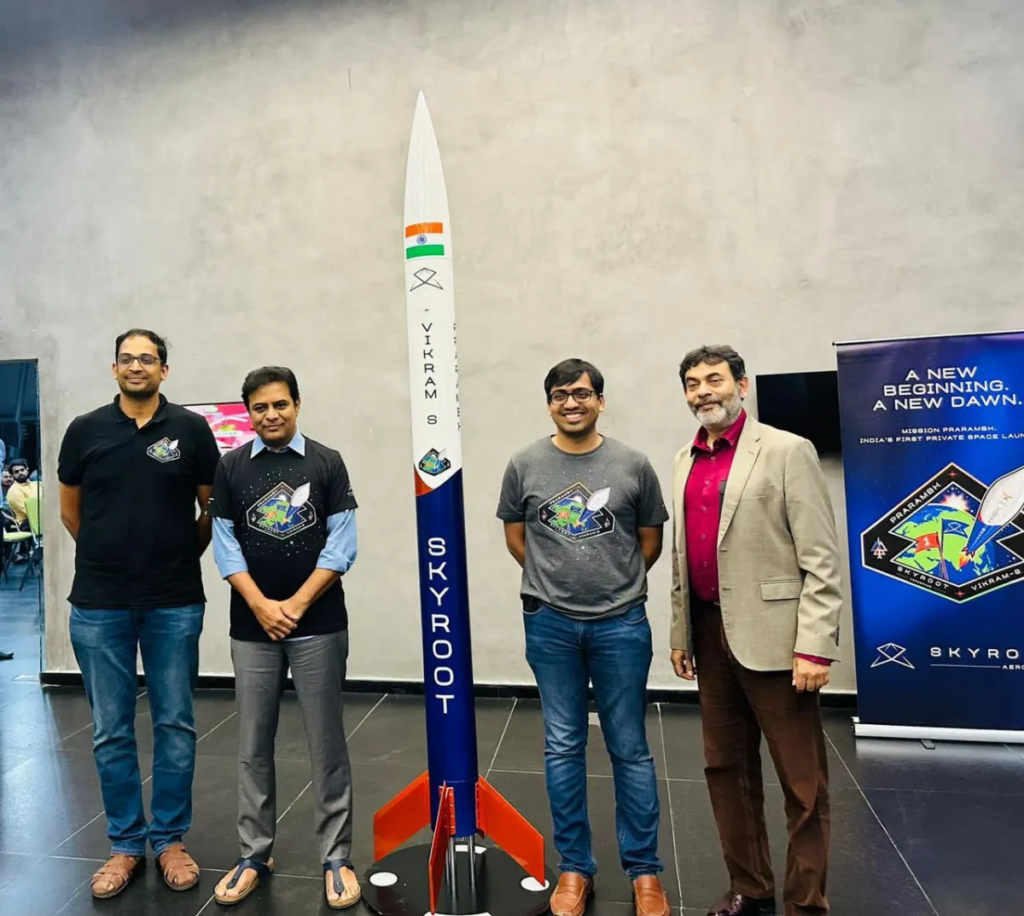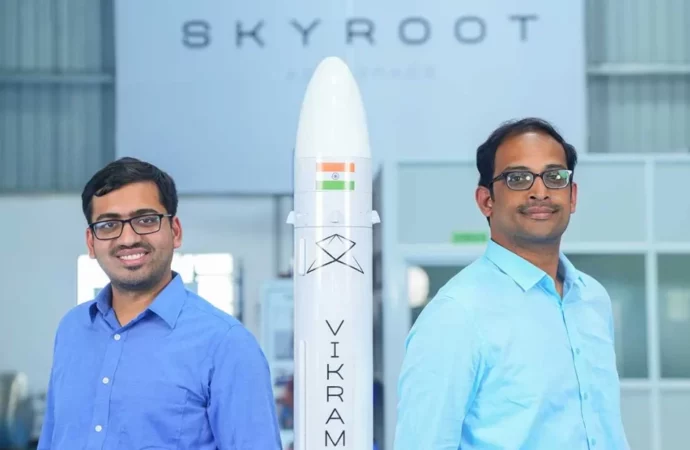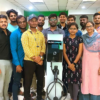Skyroot Aerospace: Transforming Space Access, One Launch at a Time.
Introduction
Skyroot Aerospace, an Indian private aerospace manufacturer and commercial launch service provider, has rapidly ascended in the space industry. Founded by former ISRO engineers Pawan Kumar Chandana and Naga Bharath Daka in 2018, the company aims to make space more accessible and affordable for small satellite launches. Their journey from a startup to a key player in India’s private space sector is a testament to innovation, determination, and strategic vision.
Genesis of Skyroot Aerospace
The story of Skyroot Aerospace begins with the experiences of its founders at the Indian Space Research Organisation (ISRO). Pawan Kumar Chandana, an IIT Kharagpur graduate, and Naga Bharath Daka, from IIT Madras, worked on various significant ISRO projects, including the Mars Orbiter Mission and the GSLV Mk-III. Their exposure to the intricacies of space missions inspired them to address the challenges of cost and accessibility in satellite launches.

Foundation and Early Challenges
In 2018, with a vision to democratize access to space, Chandana and Daka established Skyroot Aerospace. The early days were marked by the challenges typical of any startup: securing funding, building a skilled team, and developing technology from the ground up. Despite these hurdles, their background at ISRO and the burgeoning interest in private space ventures provided a strong foundation.
Technological Innovations
Skyroot Aerospace’s flagship project is the Vikram series of launch vehicles, named after Dr. Vikram Sarabhai, the father of the Indian space program. The Vikram series is designed to cater to the burgeoning small satellite market, which demands cost-effective and flexible launch solutions. The company has focused on using advanced technologies such as 3D printing for rocket engines, which significantly reduces manufacturing time and cost.
Milestones and Achievements
Skyroot Aerospace has achieved several key milestones in a short span. In 2020, they successfully test-fired their first solid-fueled rocket engine, Kalam-5, named after Dr. A.P.J. Abdul Kalam. This success was followed by the development of the Dhawan-1 engine, India’s first privately developed cryogenic rocket engine, which uses liquefied natural gas (LNG) and liquid oxygen (LoX).
In November 2022, Skyroot made history with the successful launch of Vikram-S, India’s first privately built rocket, which carried three customer payloads to space. This landmark achievement positioned Skyroot as a serious contender in the global small satellite launch market.
Strategic Partnerships and Investments
Skyroot Aerospace has attracted significant investment and formed strategic partnerships to bolster its growth. Notable investors include Greenko Group founders and prominent venture capital firms. The company has raised over $68 million in funding rounds, which has been instrumental in scaling up its operations and accelerating its research and development efforts.
Vision for the Future
Skyroot Aerospace envisions a future where space is accessible to all, enabling new opportunities in satellite communications, earth observation, and scientific exploration. Their roadmap includes the development of more advanced variants of the Vikram launch vehicles and expanding their launch services to cater to a global clientele.

Conclusion
The success story of Skyroot Aerospace is a compelling narrative of how visionaries from ISRO leveraged their expertise to create a pioneering private space company. With their innovative approach, strategic foresight, and relentless pursuit of excellence, Skyroot Aerospace is poised to lead India’s foray into the global space industry, making space more accessible and affordable for future generations.

























Leave a Comment
Your email address will not be published. Required fields are marked with *